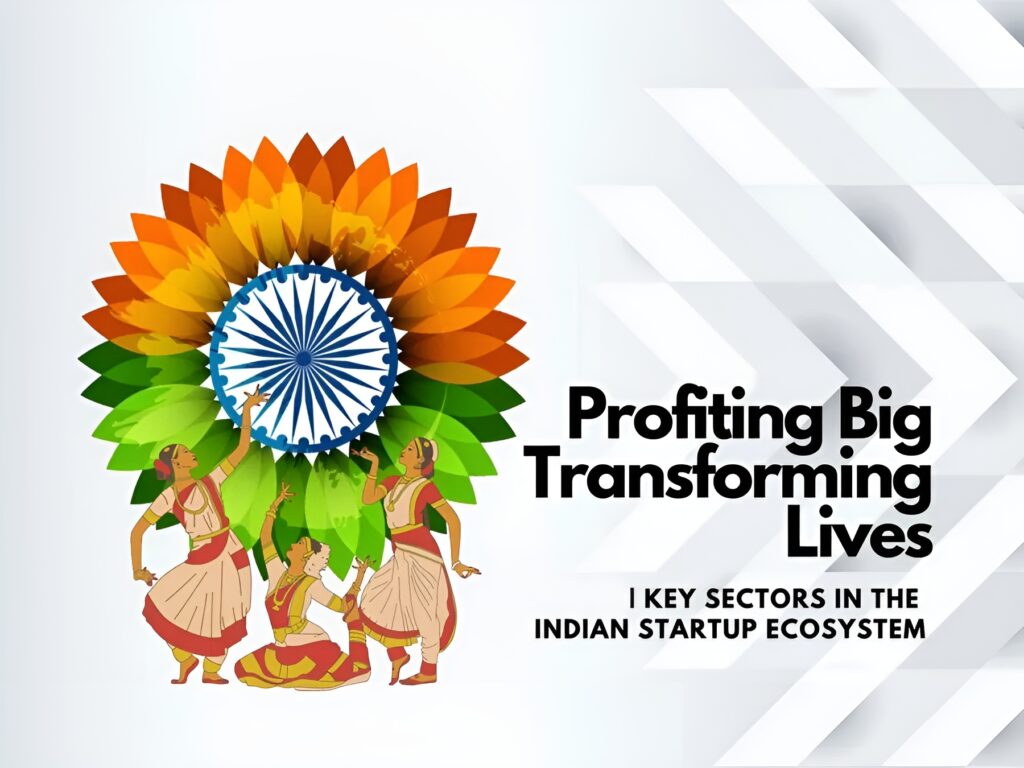As we navigate through 2025, the startup ecosystem is experiencing a dynamic transformation. Technological advancements, shifting consumer behaviors, and global challenges are reshaping the landscape, presenting unprecedented opportunities for entrepreneurs and investors alike. This article delves into the sectors poised for significant growth, offering insights into the technologies driving them, the reasons behind their emergence, key players leading the charge, and the myriad opportunities they present.
1. Artificial Intelligence and Automation
Why Now:
Artificial Intelligence (AI) has transitioned from a futuristic concept to a present-day reality, permeating various industries. The proliferation of AI-as-a-Service (AIaaS) platforms has democratized access, enabling businesses of all sizes to leverage AI for efficiency and innovation. In 2025, AI is expected to generate over $1 trillion in value globally, with funding projected to surpass $60 billion, focusing on sectors like robotics, autonomous vehicles, and AI-powered healthcare.
Key Technologies:
- Generative AI for content creation
- AI-driven analytics for decision-making
- Automation tools for operational efficiency
Notable Players:
- Perplexity AI: Enhancing information retrieval through AI.
- Scale AI: Providing data labeling services for machine learning.
Opportunities for Startups:
- Develop niche AI solutions tailored to specific industries, such as healthcare diagnostics, financial forecasting, or personalized marketing.
- Create AI-powered tools for small and medium-sized enterprises (SMEs) to automate routine tasks.
- Innovate in AI ethics and governance frameworks to ensure responsible AI deployment.
- Develop AI-driven cybersecurity solutions to detect and prevent threats in real-time.
- Explore AI applications in education, such as personalized learning platforms.
2. Renewable Energy and Sustainability
Why Now:
The global push towards sustainability has intensified, with governments and consumers demanding cleaner energy solutions. Technological advancements have made renewable energy more accessible and cost-effective. In 2025, global investment in CleanTech is expected to reach $40 billion, focusing on carbon capture, renewable energy innovations, and green transportation solutions like electric vehicles (EVs).
Key Technologies:
- Solar and wind energy systems
- Energy storage solutions
- Smart grid technologies
Notable Players:
- Solar Landscape: Leading in commercial rooftop solar projects.
- Cradlewise: Innovating in energy-efficient baby products.
Opportunities for Startups:
- Develop energy-efficient appliances and sustainable packaging solutions.
- Create carbon offset platforms to help businesses achieve carbon neutrality.
- Innovate in green hydrogen production and sustainable agriculture technologies.
- Design community microgrids and pay-as-you-go solar models for developing regions.
- Develop software solutions for energy consumption monitoring and optimization.
3. Healthcare Technology
Why Now:
The pandemic underscored the need for robust healthcare systems. Digital health solutions have gained traction, offering remote and efficient patient care. The healthcare and life sciences sector is experiencing substantial growth, bolstered by increased insurance coverage for services like autism therapy and fertility treatments.
Key Technologies:
- Telemedicine platforms
- Wearable health monitors
- AI-driven diagnostic tools
Notable Players:
- Oura: Providing health insights through wearable rings.
- Brightwheel: Streamlining childcare management with technology.
Opportunities for Startups:
- Develop personalized medicine platforms and genetic testing services.
- Create mental health apps focusing on therapy and wellness.
- Innovate in AI-powered diagnostic tools for faster, more accurate results.
- Design virtual reality (VR) and augmented reality (AR) solutions for medical training and patient care.
- Develop platforms for remote patient monitoring and chronic disease management.
4. Cybersecurity
Why Now:
With increasing digitalization, cybersecurity threats have become more sophisticated. Businesses and individuals are seeking robust security solutions. In 2025, the global cybersecurity market is expected to surpass $400 billion, with startups providing next-gen threat detection, cloud security, and identity protection receiving heavy backing.
Key Technologies:
- AI-driven threat detection
- Blockchain for secure transactions
- Zero-trust security models
Notable Players:
- ZeroTier: Offering secure networking solutions.
- Deepgram: Providing secure voice recognition services.
Opportunities for Startups:
- Develop solutions for secure remote work and personal data protection.
- Create threat intelligence platforms for real-time cyber threat analysis.
- Innovate in secure digital identity verification solutions.
- Design cybersecurity consulting services for small and medium-sized businesses.
- Develop AI-driven tools for proactive threat hunting and response.
5. E-Commerce and Direct-to-Consumer (DTC) Brands
Why Now:
Consumer shopping habits have shifted towards online platforms, with a preference for personalized experiences. In 2025, the global e-commerce market is expected to exceed $9 trillion, with retail technology startups attracting significant investment to innovate supply chain solutions and personalized shopping.
Key Technologies:
- AI-driven product recommendations
- Augmented reality for virtual try-ons
- Subscription-based models
Notable Players:
- Gumroad: Empowering creators to sell directly to consumers.
- Saie: A clean beauty brand leveraging DTC channels.
Opportunities for Startups:
- Explore niche markets with unique product offerings.
- Develop sustainable products and eco-friendly packaging.
- Innovate in delivery models, such as same-day or drone delivery.
- Create AI-powered chatbots for personalized customer service.
- Design platforms for seamless omnichannel retail experiences.
6. Educational Technology (EdTech)
Why Now:
The demand for flexible and accessible learning solutions has surged, driven by remote work and the need for continuous upskilling. The global EdTech market is expected to reach $450 billion by 2025, with startups offering AI-powered learning platforms, upskilling solutions, and educational software receiving substantial investments.
Key Technologies:
- AI-powered personalized learning
- Virtual classrooms
- Gamified learning platforms
Notable Players:
- Preply: Connecting students with tutors globally.
- Adalo: Enabling users to build educational apps without coding.
Opportunities for Startups:
- Develop platforms for corporate training and upskilling.
- Create language learning apps with immersive experiences.
- Innovate in AI-driven adaptive learning technologies.
- Design educational tools for special needs students.
- Develop platforms for collaborative learning and peer-to-peer tutoring.
7. Financial Technology (FinTech)
Why Now:
FinTech is experiencing a significant surge in 2025, driven by technological advancements, evolving consumer expectations, and supportive regulatory environments. The global FinTech market is projected to reach approximately $394.88 billion in 2025, with forecasts estimating growth to $1.13 trillion by 2032, reflecting a CAGR of 16.2% . This expansion is fueled by the increasing demand for digital financial services, the proliferation of smartphones, and the integration of AI and blockchain technologies.
Key Technologies:
- Artificial Intelligence (AI): Enhancing customer service through chatbots, automating underwriting processes, and improving fraud detection mechanisms.
- Blockchain: Facilitating secure and transparent transactions, enabling decentralized finance (DeFi) platforms, and streamlining cross-border payments.
- Open Banking APIs: Allowing third-party developers to build applications and services around financial institutions, promoting innovation and competition.
- Robotic Process Automation (RPA): Automating repetitive tasks, reducing operational costs, and increasing efficiency in financial services.
Notable Players:
- Upstart Holdings: Utilizes AI to assess creditworthiness, offering personal loans with a projected CAGR of 28.8% through 2026.
- SoFi Technologies: Provides a range of financial products, including student and personal loans, with an expected CAGR of 18.8%
- Affirm Holdings: Offers buy-now-pay-later services, anticipating a CAGR of 26.0% through 2026.
Opportunities for Startups:
- AI-Driven Financial Advisory: Develop platforms that provide personalized investment advice using machine learning algorithms to analyze market trends and individual risk profiles.
- Decentralized Finance (DeFi) Solutions: Create decentralized platforms for lending, borrowing, and trading, offering users greater control over their financial assets.
- RegTech Innovations: Design tools that assist financial institutions in complying with regulatory requirements through automated reporting and monitoring systems.
- Financial Inclusion Platforms: Develop services targeting underbanked populations, providing access to credit, savings, and insurance products via mobile technology.
- Sustainable Finance Applications: Create platforms that facilitate investments in environmentally and socially responsible projects, aligning with the growing demand for ethical finance.
8. Cybersecurity
Why Now:
As digital transformation accelerates, cybersecurity has become paramount. The financial sector, in particular, faces increasing threats, necessitating robust security measures. The global cybersecurity market is projected to surpass $400 billion in 2025, with startups playing a crucial role in developing advanced threat detection and prevention solutions.
Key Technologies:
- AI-Powered Threat Detection: Utilizing machine learning to identify and respond to cyber threats in real-time.
- Zero Trust Security Models: Implementing strict access controls and continuous verification to protect sensitive data.
- Blockchain for Security: Employing decentralized ledgers to enhance data integrity and prevent unauthorized access.
Notable Players:
- Sardine: Provides fraud prevention solutions for digital financial products, integrating behavioral analytics and device intelligence.
- Data Sentinel: Offers automated data compliance services, enabling financial institutions to manage sensitive information securely.
Opportunities for Startups:
- Identity Verification Services: Develop solutions that utilize biometrics and AI to authenticate users, reducing fraud in digital transactions.
- Cloud Security Platforms: Create tools that protect cloud-based infrastructures, ensuring data privacy and compliance with regulations.
- Cybersecurity Training Programs: Offer educational platforms that train employees in recognizing and preventing cyber threats.
- Incident Response Solutions: Design systems that enable organizations to quickly detect, respond to, and recover from cyber incidents.
- IoT Security Measures: Develop security protocols for Internet of Things devices, safeguarding networks from potential vulnerabilities.
9. E-Commerce and Direct-to-Consumer (DTC) Brands
Why Now:
The e-commerce sector continues to thrive, with consumers increasingly favoring online shopping for convenience and variety. In 2025, the global e-commerce market is expected to exceed $9 trillion, with startups innovating in areas like personalized shopping experiences and efficient supply chain solutions.
Key Technologies:
- AI-Powered Recommendations: Enhancing user experience by providing personalized product suggestions.
- Augmented Reality (AR): Allowing customers to visualize products in their environment before purchasing.
- Subscription Models: Offering recurring delivery services for products, ensuring customer retention.
Notable Players:
- Gumroad: Empowers creators to sell products directly to consumers, simplifying the e-commerce process.
- Saie: A clean beauty brand leveraging DTC channels to reach customers directly.
Opportunities for Startups:
- Niche Marketplaces: Develop platforms catering to specific product categories or communities, offering curated selections.
- Sustainable Products: Create eco-friendly products and packaging, appealing to environmentally conscious consumers.
- Efficient Logistics Solutions: Innovate in delivery methods, such as drone or autonomous vehicle deliveries, to expedite shipping.
- AI-Driven Customer Service: Implement chatbots and virtual assistants to enhance customer support and engagement.
- Omnichannel Retail Strategies: Integrate online and offline shopping experiences, providing seamless transitions for consumers.
10. Educational Technology (EdTech)
Why Now:
The demand for flexible and accessible learning solutions has surged, driven by remote work and the need for continuous upskilling. The global EdTech market is expected to reach $450 billion by 2025, with startups offering AI-powered learning platforms and educational software receiving substantial investments .
Key Technologies:
- AI-Powered Personalized Learning: Tailoring educational content to individual learning styles and paces.
- Virtual Classrooms: Facilitating real-time, interactive online learning experiences.
- Gamified Learning Platforms: Incorporating game elements to increase engagement and motivation.
Notable Players:
- Preply: Connects students with tutors globally, offering personalized language learning experiences.
- Adalo: Enables users to build educational apps without coding, democratizing app development.
Opportunities for Startups:
- Corporate Training Platforms: Develop solutions for businesses to upskill employees efficiently.
- Language Learning Apps: Create immersive platforms for learning new languages, incorporating AI and AR technologies.
- Special Needs Education Tools: Design applications catering to students with learning disabilities, providing customized support.
- Collaborative Learning Environments: Build platforms that facilitate group projects and peer-to-peer learning.
- Assessment and Analytics Tools: Offer systems that track student progress and provide actionable insights for educators.
11. Health Technology (HealthTech)
Why Now:
The pandemic underscored the need for robust healthcare systems. Digital health solutions have gained traction, offering remote and efficient patient care. The healthcare and life sciences sector is experiencing substantial growth, bolstered by increased insurance coverage for services like autism therapy and fertility treatments .
Key Technologies:
- Telemedicine Platforms: Enabling remote consultations and reducing the need for in-person visits.
- Wearable Health Monitors: Tracking vital signs and health metrics in real-time.
- AI-Driven Diagnostic Tools: Assisting in early detection and diagnosis of diseases.
Notable Players:
- Oura: Provides health insights through wearable rings, monitoring sleep and activity levels.
- Brightwheel: Streamlines childcare management with technology, enhancing communication between parents and caregivers.
Opportunities for Startups:
- Personalized Medicine Platforms: Develop services that tailor treatments based on genetic information.
Conclusion: Navigating the Startup Landscape in 2025
As we progress through 2025, the startup ecosystem is characterized by rapid innovation, technological advancements, and evolving consumer demands. The sectors highlighted—ranging from FinTech and Cybersecurity to HealthTech and EdTech—demonstrate significant growth potential and are reshaping industries globally.
In India, initiatives like the IndiaAI Mission and events such as the Invest Kerala Global Summit underscore the nation’s commitment to fostering innovation and attracting investments across various sectors, including AI, renewable energy, and healthcare .
For aspiring entrepreneurs and investors, staying attuned to these emerging sectors and leveraging the opportunities they present is crucial. By aligning with these growth areas, startups can position themselves at the forefront of industry transformation, driving progress and creating impactful solutions for the future.



